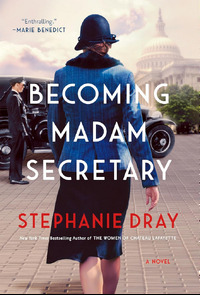|
DiAnn Mills | Brainstorming Your Novel
July 9, 2014

Every novelist reaches a plateau in which the perfect story idea isn’t coming
together. The plot germ is there, but the theme, setting, characters, and
storyline seem to spin out of control. By using the acronym, BRAINSTORM, you can bring the whirling to a halt and
anchor your writing onto a firm foundation. Believe in yourself. You’ve been given the gift of writing, and you’re
pretty good at it. You understand the craft, and you’re continuously educating
yourself to add more tools and techniques. Realistic writing is what sells. No matter the genre, your storyline must
be credible with identifiable characters who react and respond according to the
traits you’ve assigned them. Analyze your basic idea. How can you grow your characters by making their
goals difficult, perhaps impossible to reach? Inspire your readers to attempt and achieve great things. Fiction is
truth. Jesus spoke in parables and through His stories, people gleaned meaning
and purpose for their lives. Don’t preach your message. Let the reader see who
your characters are by the way they tackle life’s challenges. Name your book and your characters. Why is this important? Because the
title of a book gives the writer passion for the project. Who wants to wake up
each morning to the thrill of working on novel X? In the same way, your
characters deserve names that mean something significant in the novel. Show don’t tell. Propel your story into action by incorporating body
language, explosive emotion, purposeful dialogue, and unique settings. Technique is essential to every story. To make sure your plotting is
tight, ask yourself the following four questions before writing each scene: 1. What is the point of view character’s problem or goal? 2. What does the point of view character learn that he/she didn’t know before? 3. What backstory is revealed? (But not in the first fifty pages.) 4. How are the stakes raised for the point of view character? Organize your thoughts into a file that contains all of your notes:
plotting, research, characterization, and where you obtained the information. Go
a step further and write a lengthy synopsis. I recommend plotting every scene.
This doesn’t stifle your creativity! You are the writer, and you can add,
delete, and change whatever is necessary. Research is vital to every successful novel. If your novel takes place
in your backyard, then research the weeds there. Do your best to visit the
setting. Interview those who have the same careers or experiences as your
characters. Use the services of a library, chamber of commerce, Internet
exploration, and any other means of research to root your reader into the story. Motivation is the key to every successful novel. You were motivated to
begin a career as a writer. You were motivated to read this blog. Your
characters are motivated by their wants and needs. Discover your character’s
drive to see what he/she will do to achieve those wants and needs. This list is only the beginning to get your creativity flowing. Once you’ve
completed the motivation aspect of your novel planning, the desire to write will
soon take over. You’ll be ready to position your nimble fingers on the keyboard
and speed off on another adventure! Comment below to be entered to win a $25 Amazon gift card from DiAnn! Learn
more about
DiAnn and her books at her website, Facebook page, and Twitter page!
Comments
25 comments posted.
Re: DiAnn Mills | Brainstorming Your Novel
Oh that is interesting and clever... not that I am a writer, but I will have to remember BRAINSTORM! Thanks for sharing! :)
(Colleen Conklin 2:30pm July 9, 2014)
I absolutely love this brief guide to creative writing and will pass it along to my would-be writer friends, DiAnn!
(Susan Coster 5:21pm July 9, 2014)
Loved reading all the information which is very insightful. Thanks for the tips. Firewall sounds like a great read.
(Linda Luinstra 7:45pm July 9, 2014)
What a great little article! I have struggled so much with my writing and have asked several of my writer friends (including those with many many published books) for tips, tricks, etc... but this is the first thing I have seen that actually makes sense to me. The only part that I have a problem with is the Research, I am good at doing research, I just don't have the resources to be able to do it. Sure I can look things up on the net but that isn't the same as visiting places and talking to real people and I can't take time from my job to do that nor do I have the money to travel. But I digress! Back to my point! I am thrilled with this article and will be saving it for future reference! Thanks so much!
(Karen Yawn 8:13pm July 9, 2014)
That is also good when writing reports for work and papers
for school. I do something along those lines when I do
school work and there are few changes to what I do when
doing work reports. It makes your process clear cut and
gives you the means to complete what you have to without
getting frustrated.
I am currently reading one of your books and find it very
much follows what you have here. I am enjoying it
immensely. Thank you.
(Tina Ullrich 9:57pm July 9, 2014)
I like your BRAINSTORM techniques!
(Janie McGaugh 10:05pm July 9, 2014)
Great post DiAnn! It would be wonderful if every author
followed these steps! (Too bad they don't teach this enough in
school. :-) )
(Glenda Martillotti 11:35pm July 9, 2014)
I am impressed you could use BRAINSTORM for an acronym!
Sounds like a nifty way to get past the problem.
(G. Bisbjerg 11:37pm July 9, 2014)
I have not read your books, however knowing what steps you put together along with a great storyline and the characters that tell the story, makes me want to dig into Brainstorm....now! Thank you
(C Culp 6:09am July 10, 2014)
Interesting approach--thanks for sharing. The new sounds heart-stoppingly good.
(G S Moch 8:03am July 10, 2014)
Great insights into the writing process.
(Pam Howell 8:29am July 10, 2014)
I have a typing business at home, and your insights can hold true for that too (although in different ways, of course)!
(Elaine Seymour 9:52am July 10, 2014)
Knowing how successful you are as a writer, the information is
priceless!! It's something I'll have to remember, should I
decide to write the book that everyone has been pushing me to
write for years!! The acronym I have been living by is FEAR!!
(Peggy Roberson 12:09pm July 10, 2014)
I am reading FIREWALL and having trouble putting it down. It is soooo very interesting. Using Brainstorm seems to be a great recipe for creating a winner.
(Anna Speed 12:24pm July 10, 2014)
Thank you SO much for sharing this process with us - amazing!
(Felicia Ciaudelli 1:25pm July 10, 2014)
I'm not a writer, but I like BRAINSTORM. ;)
(Marcy Shuler 4:21pm July 10, 2014)
Love your books, hope I win.
(Judy Ferguson 6:15pm July 10, 2014)
those are all great points, and not just for writers
(Diane Sallans 8:20pm July 10, 2014)
Loved the article!
(Felicia Plastini 8:26pm July 10, 2014)
I have no time to write a book, but who knows.
(Deb Pelletier 9:06pm July 10, 2014)
Great info! Maybe it will help me get started!
(Diane Pollock 11:22pm July 10, 2014)
It is always interesting to find out what makes an author
"tick". Love your books.
(LaRonda Atchison 11:58pm July 10, 2014)
I just love your writing advises and strategy. As for research, that is one of the thing I always argue with my supervisor: How do you think I can write a report if I don't have any background information or have completed my research. Gets me into trouble every time.
(Kai Wong 2:17am July 11, 2014)
Great post, that sounds like a great way to kick-start a
story.
(Jen Barnard 8:24am July 13, 2014)
What an interesting post on writing! I will definitely remember the BRAINSTORM technique. Thanks for sharing.
(Bonnie H 9:34pm July 28, 2014)
Registered users may leave comments.
Log in or register now!
| 

 © 2003-2025 off-the-edge.net
all rights reserved Privacy Policy
© 2003-2025 off-the-edge.net
all rights reserved Privacy Policy